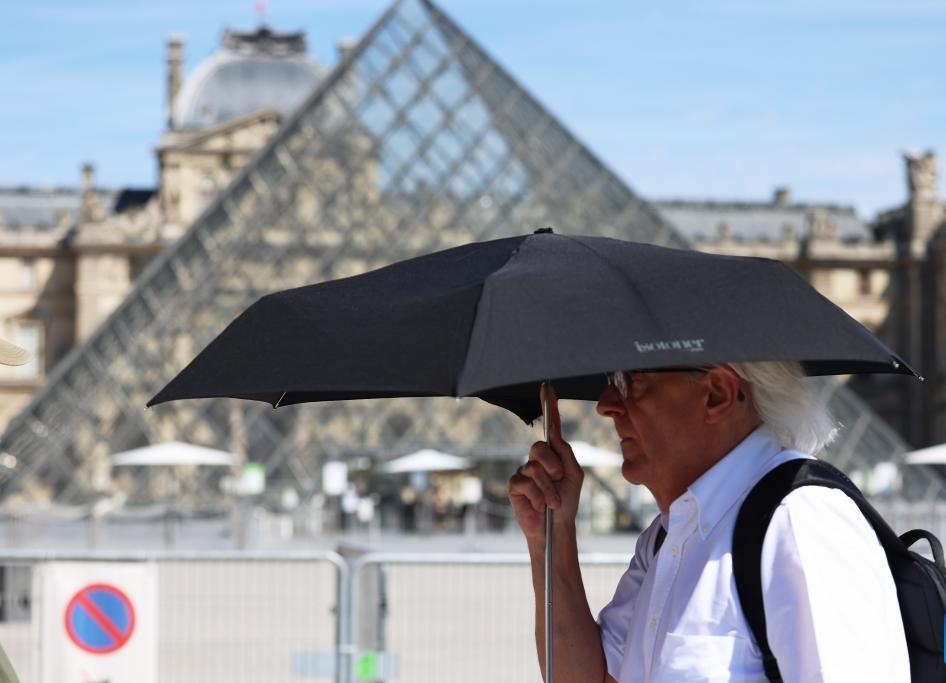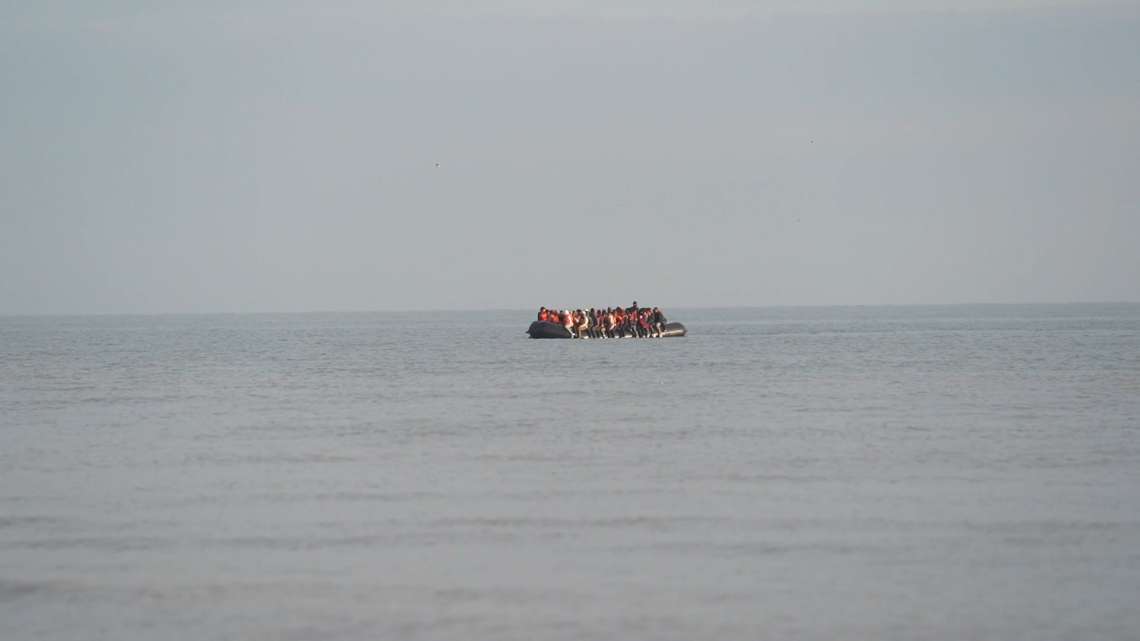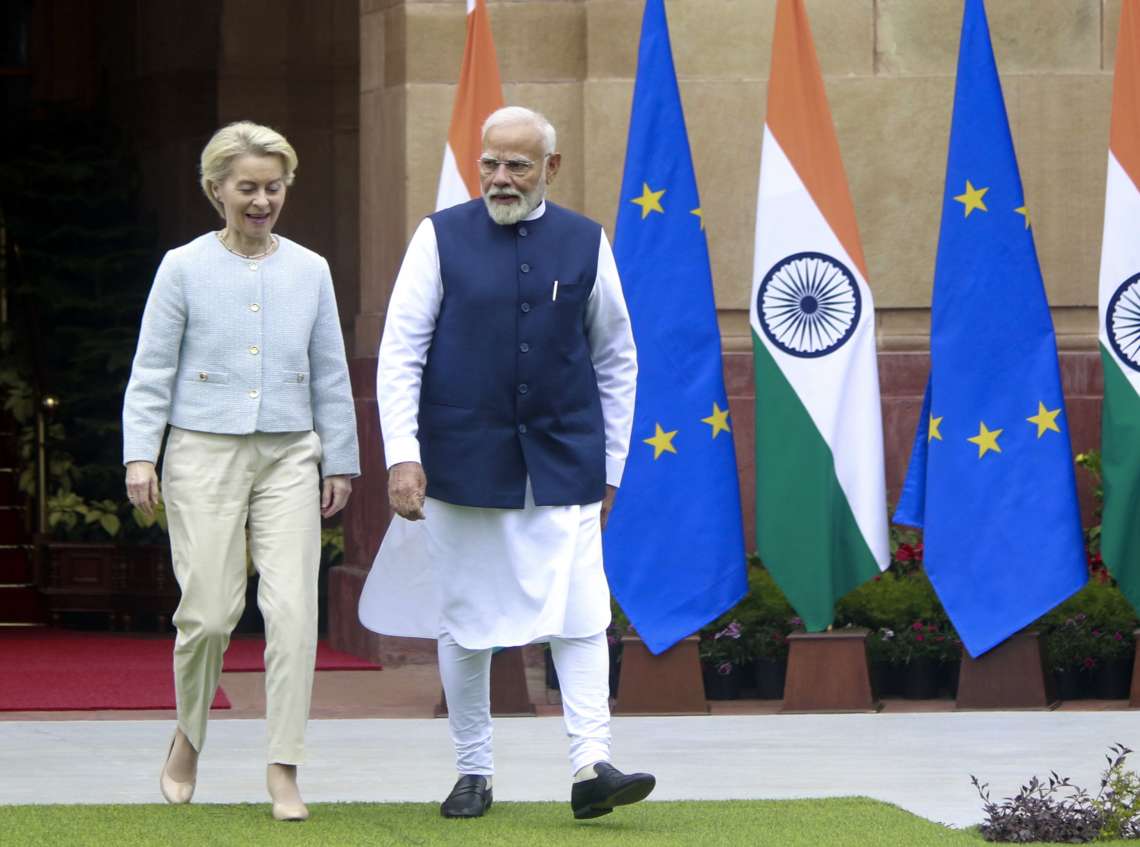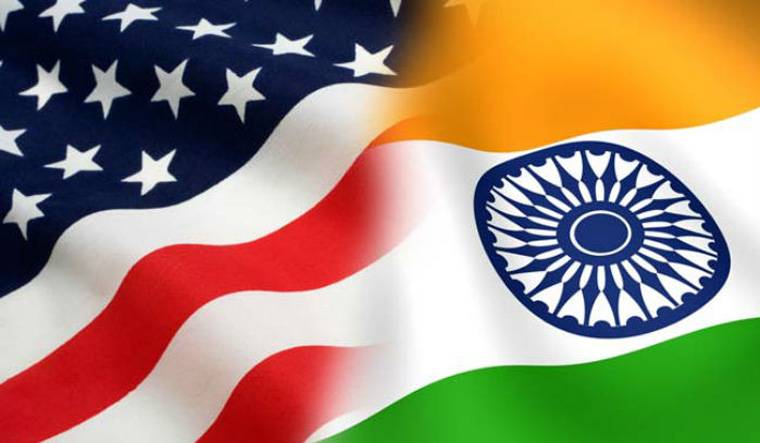Although over 80 countries have developed national drought plans, the UNCCD warns that implementation remains a major gap…reports Asian Lite News
Large swathes of Europe are being scorched by extreme heat and deepening drought, triggering wildfires and prompting urgent weather warnings across several countries.
Scientists and international agencies warn that this crisis is part of a broader “new era of drought,” driven by climate change and posing escalating threats to food security, ecosystems, and national economies.
Germany is experiencing what may be its hottest day of the year on Wednesday, with temperatures forecast to reach 40 degrees Celsius, according to the German Weather Service, which has issued extreme heat warnings across much of the country and highlighted a rising risk of wildfires, especially in the southeast.
Similar conditions are unfolding across Central Europe. In the Czech Republic, the national meteorological institute warned of “very high temperatures” and increased fire danger, with some regions expected to reach 37 degrees Celsius, reports Xinhua news agency.

Prague’s emergency services have already responded to multiple heat-related incidents, and a fire ban remains in effect.
Slovakia’s meteorological authority issued its highest-level red alert for 10 districts on Thursday, forecasting highs up to 38 degrees Celsius as warm air masses from the west intensify the heat.
Neighbouring Croatia and Romania are also on alert, with peak temperatures expected to reach 39 degrees Celsius and 37 degrees Celsius, respectively.
In the Netherlands, the Royal Netherlands Meteorological Institute confirmed the country’s first official heatwave in three years. De Bilt, the national reference station, recorded five consecutive days above 30 degrees Celsius, prompting a code orange alert in the southeastern provinces.
Southern Europe is faring no better. Spain continues to endure a record-breaking heatwave, with June 2025 confirmed as the country’s hottest month on record.
The Spanish meteorological agency AEMET reported an average monthly temperature of 23.6 degrees Celsius, hotter than typical July and August averages. Tragically, two farmers died on Tuesday in a wildfire that scorched 5,000 hectares in La Segarra, northeast Spain.
In Slovenia, the Environment Agency (ARSO) noted that June 2025 was not only the hottest but also the driest month since records began, with rainfall just 24 per cent of the monthly average.
Heatwaves continue in Croatia, where the Croatian Meteorological and Hydrological Service (DHMZ) forecasts maximum temperatures of 37 degrees Celsius on Wednesday and 39 degrees Celsius on Thursday.
Bosnia and Herzegovina issued an orange weather warning for July 3 and July 4, with temperatures expected to reach between 35 and 40 degrees Celsius. Meteorologist Bakir Krajinovic from the Federal Hydrometeorological Institute said that June 2025 was unprecedented in the country’s measurement history, with zero rainfall recorded at meteorological stations in cities such as Tuzla and Mostar.
These escalating conditions in Europe are part of a global pattern. A new report released Wednesday, Drought Hotspots Around the World 2023-2025, presents a stark picture. Jointly prepared by the UN Convention to Combat Desertification (UNCCD) and the U.S. National Drought Mitigation Centre (NDMC), the report warns that drought has become one of the most widespread and damaging crises of our time.

“Drought was once primarily associated with rainfall and agriculture,” said Daniel Tsegai, program officer at UNCCD. “Today, it is a multi-sectoral, systemic shock. No sector, no part of the economy, and no country is immune to its impacts.”
The report notes that the frequency of global droughts increased by 30 per cent between 2000 and 2019. Driven by climate change and rising demands for land and water, droughts now threaten food supplies, water availability, biodiversity, energy systems, and public health, all critical pillars of society.
Mark Svoboda, co-author and founding director of NDMC, described the situation as “a slow-moving global catastrophe, the worst I’ve ever seen.”
The economic toll is mounting rapidly. NDMC research cites an OECD estimate that the financial cost of drought today is at least double what it was in 2000, with further increases of up to 110 per cent projected by 2035.
“Ripple effects can turn regional droughts into global economic shocks,” said co-author Cody Knutson. “No country is immune when critical water-dependent systems start to collapse.”
The report warns that drought is already costing some countries up to 10 per cent of their GDP annually, and may soon disrupt energy grids, food supply chains, and entire ecosystems.
The UNCCD urges countries to act immediately by investing in early warning systems, drought monitoring, and nature-based solutions such as watershed restoration. Building resilient infrastructure, including off-grid energy and alternative water technologies, is also crucial.
Tsegai emphasised that combating drought requires shifting from reactive crisis management to proactive, long-term planning. Addressing these interconnected threats demands coordinated action across sectors and governance levels, involving ministries, local communities, and national governments alike.
Although over 80 countries have developed national drought plans, the UNCCD warns that implementation remains a major gap. Without stronger execution and cooperation, experts caution that the world could face increasingly severe and widespread drought-related crises.














